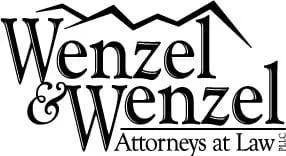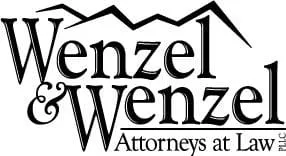Wenzel & Wenzel provides step by step guidance with probate and estate administration after the death of a loved one. Contact us for more details.
Why Wenzel & Wenzel?
Our approach to handling an estate provides you with the best possible service, at the most appropriate time, in the most efficient manner. Our experience has shown that full service is the best approach, and costs you less in the long run.
The Need for Probate
When a person passes away, someone will need to open an estate at the courthouse. This is usually the person named as the Executor in the will. If the deceased person did not have a will, this would be a family member, who would then be called the Administrator. (Executor and Administrators are often referred to as the Personal Representative.)
There are some small estate proceedings we can use when the deceased person did not own real estate or if there is a surviving spouse. (If everything is titled in the name of a trust, then the court is not involved.)
The Personal Representative’s Job
The Personal Representative then begins handling the assets and the bills of the estate. Handling an estate is a process with a particular order, so we assist clients in taking it one step at a time, explaining what needs to be done as we approach each step. When you are grieving for a family member or friend, we try not to overburden you with too much information all at once.
Court Documents
- Initial documents to be appointed as Executor or Administrator (if there is a will, the original must be filed with the court and it will not be returned)
- Inventory – listing of all assets or potential assets of the estate as of the date of death.
- Publication to set a claim bar date
- Annual/final account – Accounting of all the transactions in the estate, to be filed with bank statements, claim satisfactions, receipts by beneficiaries, and all supporting documentation.
Timeframes
- The first three months after opening an estate is a time for gathering information regarding assets, bills, and claims. We assist the Personal Representative with all of the paperwork to get this done.
- After the initial three month period, we assist the Personal Representative with paying bills and claims of the estate in the legal prescribed order and manner, determine if the real estate will need to be sold in order to pay claims, or determine if other assets will be needed in order to handle the estate.
- Once all the bills have been paid and proofs of satisfaction received, then we assist the Personal Representative with distributing the remaining items and money to the beneficiaries and heirs, getting receipts, and finalizing the estate.
- A truly simple estate averages at least six months from opening to the filing of the final account.
- Sometimes an estate must stay open until the beginning of the next calendar year, in order to file the final income tax returns.
- If real estate or other assets need to be sold in order to pay claims and bills, these more complicated estates tend to average fifteen months or more.
Accountings
When you hire us, we will assist you, the Personal Representative, with closing financial accounts and transferring assets into accounts in the name of the estate. We assist with all steps, beginning with opening the account, obtaining the tax identification number, ordering the checks, writing checks for you to sign, making all deposits, reconciling the accounts, and finally closing the account once the estate is closed. In doing so, we are already preparing your accounting for the court.
We have developed relationships with financial institutions and processes for making this process as efficient as possible. We do this every day. When we are not involved in these steps, estates become more complicated, and it costs the estate more in attorney’s fees as we try to track down information, fill in the blanks, correct information, etc.
If you hire us, let us help you. Clients often try to save money by proceeding on their own, such as paying bills, distributing assets, contacting creditors, making deposits themselves or establishing the estate account. However, in all of those cases, the client ends up paying more in attorney’s fees as we do not have all of the information we need and cannot advise the client each step of the way.
Easing the Process in Your Time of Mourning
The courts and legal system can be a difficult maze to understand, especially when you are mourning a recently deceased family member or friend. We can help ease the process.
Our office works with the Personal Representative or the Trustee in administering the assets, creditors, and distributions involved in an estate or trust. We can assist the Personal Representative with all of these steps, as well as more complicated situations, such as the sale of real estate, or methods of handling disputes among the heirs and beneficiaries. The probate process can be emotional, as well as paperwork intensive. We make that necessary process much easier for you.
Beneficiaries
Our office does not represent the beneficiaries of an estate or trust. Further, we do not handle any lawsuits against Executors or Trustees.
Guardianships
At this time, we do not get involved in court hearings to declare someone incompetent or the process of being appointed guardian.
If you have already been named as Guardian, we can assist you with your legal duties and obligations, including court required accountings or the process involved with selling real estate.
Contact Us Today
Wenzel & Wenzel, PLLC, in Waynesville, NC, can be reached at 828-452-9099 or [email protected]. Contact us for more information, to learn about the process, and to obtain a worksheet prior to scheduling a personalized consultation with our experienced attorneys.



